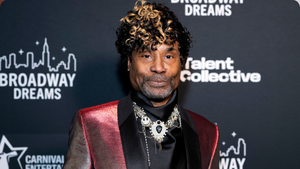The national gay
marriage debate shifted to California on Tuesday, as the
state's highest court heard arguments on the
constitutionality of a law banning same-sex marriage
that was used to end a wedding spree for thousands of
gay and lesbian couples in San Francisco, a city famed for
its progressive attitudes.
Four years after
gay rights advocates sued to overturn the ban, the
California supreme court was set to hear three hours of oral
arguments in six separate cases being heard jointly.
''I don't think
it's any secret that people look to California as being a
beacon, whatever the issue, and having a tremendous
influence in shaping the terms of the debate across
the country. That is particularly important with the
issue of marriage equality,'' said San Francisco city
attorney Dennis Herrera, who is representing the city in a
lawsuit supporting gay marriage.
The cases were
filed after the court stopped the same-sex wedding spree
that developed in San Francisco in the winter of 2004
at the direction of San Francisco mayor Gavin Newsom.
More than 4,000 couples exchanged vows at City Hall
months before gay marriage became legal in
Massachusetts, although the high court ultimately voided the
unions.
In briefs
submitted to the court, same-sex marriage supporters argue
that California's constitution leaves no room for
denying gay men and lesbians the right to wed.
While the state
is one of a handful where gay couples are entitled to
most of the same legal rights as married spouses, the
institution of marriage is too important to allow for
alternatives that are by definition inferior, they
say.
The state and
same-sex marriage opponents maintain, however, that
limiting marriage to members of the opposite sex is
reasonable -- not only to uphold tradition but because
California voters approved a ballot initiative eight
years ago bolstering the gay marriage ban that was in
place at the time. To overturn that law would abrogate the
rights of all Californians, they argue.
''A day may come
when the people decide to legalize same-sex marriage.
But such a social change should appropriately come from the
people rather than the judiciary so long as
constitutional rights are protected,'' Deputy Atty.
Gen. Christopher Krueger wrote in a court brief.
A trial court
judge in San Francisco agreed with gay rights advocates and
voided the state's marriage laws in April 2005. A midlevel
appeals court overturned his decision in October 2006.
Since these
California cases were filed, the top courts in six other
states have been asked to legalize same-sex marriage. New
Jersey's top court gave lawmakers the option of
adopting civil unions as an alternative, and a ruling
is pending in Connecticut, but none of the other
courts was persuaded.
Del Martin, now
87, and Phyllis Lyon, now 84, were the first pair to get
married in San Francisco when Mayor Newsom directed his
staff to issue marriage licenses to same-sex couples
on February 12, 2004. At the time, they had been
together for 51 years. They are one of 23 couples suing the
state, but poor health will keep them at home on Tuesday,
they said.
''If they would
go ahead and throw [the marriage ban] out, we could
stagger up to the altar,'' Lyon said with a grin.
The California
supreme court has 90 days in which to rule following the
hearing. (Lisa Leff, AP)



































































Charlie Kirk DID say stoning gay people was the 'perfect law' — and these other heinous quotes